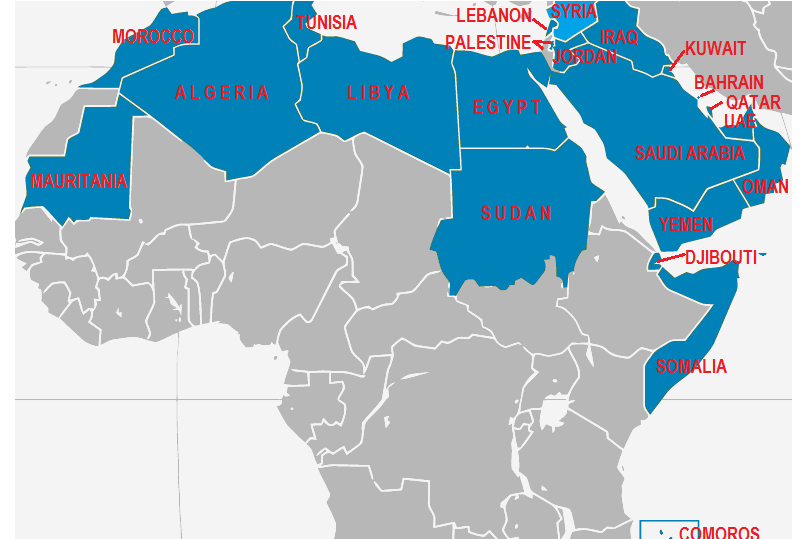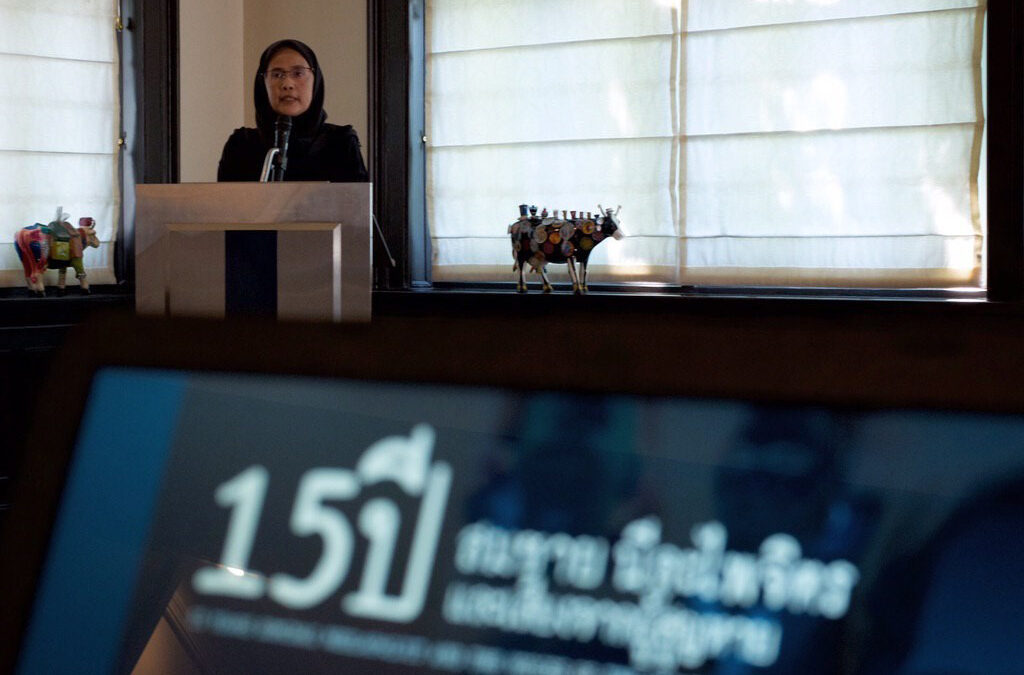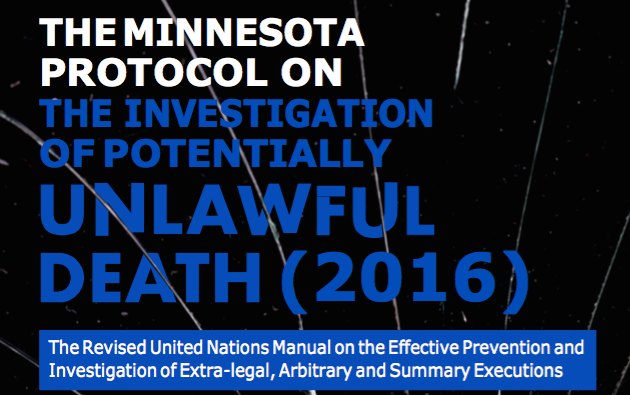
Mar 29, 2019 | News
As leaders gather for the League of Arab States (LAS) Summit beginning on 31 March 2019 in Tunis, the ICJ called on them to place human rights and accountability for violations at the forefront of their agenda.
In particular, the ICJ urged the Summit to take immediate steps to revise the Statute of the Arab Court of Human Rights in line with international standards to allow access by victims of human rights violations in the region to such a Court.
“We’ve been witnessing a spike in gross human rights violations across the Arab region, including in extrajudicial executions, enforced disappearances, arbitrary detentions, and torture and other ill-treatment,” said Said Benarbia, the ICJ’s MENA Programme Director.
“The region is in dire need of a credible and independent judicial mechanism to provide justice for human rights violations, the overwhelming majority of which presently go unaddressed,” he added.
The ICJ called on external participants to prioritize human rights in their discussions with League member States at the Summit.
Expected attendees include United Nations Secretary-General Antonio Guterres, the European Union High Representative for Foreign Affairs and Security Federica Mogherini, the Head of the African Union Commission Moussa Faki Mahamat, and the Secretary General of the Organization of Islamic Cooperation Yousef bin Abdul Al-Othaimeen.
Many States in the region are plagued by widespread and systematic violations.
These range from torture, enforced disappearance and arbitrary detentions in Egypt, attacks against human rights defenders and journalists in Saudi Arabia, including the high profile enforced disappearance and killing of Saudi journalist Jamal Khasshogi, as well as the judicial harassment of human rights defenders and political activists throughout the region.
Civilian populations have borne the brunt of violations and crimes through military operations by governments and armed groups in Yemen, Syria and Libya, and in the context of the Israeli-Palestinian conflict.
“International leaders mustn’t sit back and follow the agendas of rights-violating States at this Summit, which will no doubt be directed towards further entrenchment of their authoritarian regimes at the expense of victims,” said Benarbia.
“Instead, they should urge LAS members States to ensure accountability for human rights violations in the region, including by revising and then making operational the Statute of the Arab Court,” he added.
The ICJ said that the process of revision should only be done with the participation of a wide range of stakeholders, civil society, judges, academics, bar associations, and victims of violations.
Contact:
Said Benarbia, Director of the ICJ Middle East and North Africa Programme, t: +41-22-979-3817; e: said.benarbia(a)icj.org
Background
The Statute of the Arab Court of Human Rights, which aims to establish a regional human rights court for Arab States, was approved by the LAS Ministerial Council on 7 September 2014, but is yet to come into force.
The ICJ and others have identified significant flaws in the Statute, highlighted in the 2014 ICJ report. The report notes that the Statute does not allow victims themselves to submit complaints directly to the Court, making access to justice an illusion. In addition, the Statute does not provide for sufficient guarantees to ensure judicial independence and impartiality; does not provide adequate protective measures for petitioners, their representatives or witnesses; and fails to require the Court to interpret the Arab Charter in line with international human rights obligations.
MENA-Arab Court HR-News-2019-ARA (full story in Arabic, PDF)

Mar 12, 2019 | News
Today, the ICJ co-hosted an art exhibition and public forum titled 15th Year of Somchai’s Disappearance and the Voices of the Disappeared at the Embassy of the Netherlands in Bangkok.
The event was held to commemorate 15 years since the enforced disappearance of Somchai Neelapaijit, a prominent human rights lawyer, whose case has never been adequately by the Thai authorities.
Somchai was abducted after being stopped on a road in Bangkok on 12 March 2004 and taken from his car by a group of police officers. He has not been seen since. Fifteen years after his disappearance, Somchai’s fate and whereabouts remain unknown and no one has been held accountable for the crime against him.
More than 100 participants attended the event, including family victims of alleged disappearance cases, students, lawyers, members of civil society, diplomats, and members of the Thai authorities and media.
Opening remarks were delivered by Angkhana Neelapaijit, wife of Somchai Neelapaijit, and Kenza Tarqaât, First Secretary of the Embassy of the Netherlands in Bangkok.
The opening session included remarks by the victims who spoke about their challenges and about the progress and development regarding investigations into the alleged disappearance cases of their relatives. The session included the following speakers:
Sanhawan Srisod, the ICJ’s National Legal Adviser, spoke during the second session on recent amendments to the Draft Prevention and Suppression of Torture and Enforced Disappearance Act.
She highlighted concerns that the recent amendments would, if adopted, fail to bring the law into full compliance with Thailand’s international human rights obligations.
Sanhawan further expressed concern that the fate of the Draft Act was uncertain as Thailand’s National Legislative Assembly (NLA) that is considering the bill, while it may also continue their work in case of the necessity, will stop considering laws on 15 March, prior to the scheduled elections of 24 March 2019.
She stressed that it is crucial the Thai Government continues to consider and amend the bill, and pass it without delay in line with Thailand’s international human rights obligations.
The panel was moderated by Chanatip Tatiyakaroonwong from Cross-Cultural Foundation and also included the following panelists:
- Nongporn Roongpetchwong, Human Rights Expert, Rights and Liberties Protection Department, Ministry of Justice
- Badar Farrukh, Thailand Team Leader, United Nations’ Office of the High Commissioner for Human Rights (OHCHR) Regional Office for South East Asia
Closing remarks was delivered by Pratubjit Neelapaijit, daughter of Somchai Neelapaijit.
The forum was co-organized with the Neelapaijit family, Amnesty International – Thailand, Cross Cultural Foundation (CrCF), the Embassy of the Netherlands in Bangkok, Human Rights Lawyers’ Association and the United Nations’ Office of the High Commissioner for Human Rights (OHCHR) Regional Office for South East Asia.
Read Also:
Thailand-Summary ICJ analysis Draft Act-Advocacy-2019-ENG (Summary of the ICJ analysis of the Draft Act, in PDF)
Ten Years Without Truth: Somchai Neelapaijit and Enforced Disappearances in Thailand
Missed Opportunities: Recommendations for Investigating the Disappearance of Sombath Somphone
Thailand: ICJ submits recommendations on draft law on torture and enforced disappearance amendments
Thailand: ICJ, Amnesty advise changes to proposed legislation on torture and enforced disappearances

Mar 1, 2019 | News
On 28 February and 1 March, the ICJ met with senior officials of the Myanmar Police Force (MPF) and the Union Attorney General’s Office (UAGO) in Nay Pyi Taw.
The purpose of these talks was to promote the conduct of effective investigations into potentially unlawful deaths and enforced disappearance in accordance with international human rights law and standards, particularly the Minnesota Protocol on the Investigation of Potentially Unlawful Deaths (“Minnesota Protocol”).
Under customary international law, the right to life, and the right to be free from torture and other ill treatment, is not to be restricted even during an armed conflict or declared public emergency. All States are obliged to investigate, prosecute and punish acts that constitute violations of the right to life, and to provide effective remedies and reparations to victims.
Published by the United Nations Office of the High Commissioner for Human Rights, the Minnesota Protocol provides guidance to authorities on investigating acts amounting to human rights violations, including when State actors may have been involved. Drawing upon international law and standards, including in relation to the rights of victims and their families, the Protocol includes detailed guidelines on crime scene investigation, interviews, exhumations and autopsies.
Since December 2017, the ICJ has co-hosted four regional workshops in Thailand focused on this topic. Attendees have included lawyers, academics and State authorities from Thailand, Cambodia, Nepal, India and Myanmar.
Frederick Rawski, Director for Asia and the Pacific, Sean Bain, Legal Adviser, and Ja Seng Ing, Legal Researcher, composed the ICJ delegation in Myanmar’s capital.
Frederick Rawski proposed opportunities to continue these discussions on international standards into investigative procedures and processes. The ICJ Team also provided updates about related activities undertaken regionally and in Myanmar.
The ICJ has worked with the UAGO since 2014 to provide assistance on prosecutorial independence and human rights in the context of Myanmar’s broader democratic and legal reforms. This was the third meeting with the MPF over the last twelve months to discuss the conduct of investigations inline with international human rights law and standards.
Members of UAGO and MPF received copies of the Minnesota Protocol and indicated these would be shared with officials involved in the conduct of investigations or in setting the standards for them under national law in Myanmar.

Jan 3, 2019 | Advocacy, News, Non-legal submissions
On 30 December 2018, the ICJ and the International Service for Human Rights (ISHR) jointly submitted a communication to the Committee on the Elimination of Discrimination against Women (CEDAW Committee) directed against Thailand.
They did this as a State Party to the Optional Protocol to the UN Convention on the Elimination of All Forms of Discrimination against Women (the CEDAW Convention) on behalf and with the consent of Angkhana Neelapaijit, regarding the alleged enforced disappearance of her husband, Somchai Neelapaijit.
Somchai Neelapaijit, a prominent lawyer and human rights defender, disappeared after being stopped on a road in Bangkok on 12 March 2004 and pulled from his car by a group of men. He has not been seen since. More than 14 years after his alleged enforced disappearance, Somchai’s fate and whereabouts remain unknown.
Prior to his disappearance, Somchai had been defending clients from Thailand’s southern border provinces and had been doing extensive work to advocate for the rights of persons accused of terrorism, and to highlight the treatment of Malay-Muslims in the region.
The joint communication by ICJ and ISHR to the CEDAW Committee submits that Thailand has breached Articles 2(b)(c)(f), 5(a)(b), 15(1) and 16(1)(c)(d) of the CEDAW Convention, which relate to the rights of women to substantive equality and protection from all forms of discrimination, including in all matters relating to marriage and family relations, as well as to their right to an effective remedy for violations of the abovementioned provisions.
The communication further highlights the impact of enforced disappearance on family members of a disappeared person, noting its disproportionate impact on wives and female relatives, as most cases of enforced disappearance in Thailand involve male victims.
In addition to the CEDAW Convention and its Optional Protocol, Thailand is a party to a number of other international human rights instruments, including the International Covenant on Civil and Political Rights and the Convention against Torture and Other Cruel, Inhuman or Degrading Treatment or Punishment. In January 2012, Thailand also signed the International Convention for the Protection of All Persons from Enforced Disappearance (ICPPED), thereby committing itself to refrain from acts that would defeat the object and purpose of that treaty, namely the prevention and prohibition of the crime of enforced disappearance.
The ICJ has consistently called upon the Thai authorities to comply with their obligations under international human rights law to independently, impartially and effectively investigate the case of Somchai Neelapaijit and all other reported cases of enforced disappearance, and provide the families of the victims in such cases with access to effective remedies and reparations, including regular updates on the status of the investigations.
The ICJ has also submitted recommendations to the Thai authorities on the current Draft Prevention and Suppression of Torture and Enforced Disappearances Act, highlighting the crucial need for a domestic law to define and criminalize enforced disappearance and torture in line with Thailand’s international obligations.
Thailand-Communication to CEDAW-Advocacy-2019-ENG (full submission, in PDF)
Contact
Livio Zilli, ICJ Senior Legal Adviser & UN Representative, email: livio.zilli(a)icj.org
Read also
Thailand: ICJ submits recommendations on draft law on torture and enforced disappearance amendments
Thailand: ICJ marks 14th year anniversary of the enforced disappearance of Somchai Neelapaijit’
Thailand: ICJ, Amnesty advise changes to proposed legislation on torture and enforced disappearances
Thailand: pass legislation criminalizing enforced disappearance, torture without further delay
On the 10th anniversary of Somchai Neelapaijit’s alleged disappearance, the ICJ released a report ‘Ten Years Without Truth: Somchai Neelapaijit and Enforced Disappearances in Thailand’ documenting the legal history of the case.

Dec 14, 2018 | News
Today, on the sixth anniversary of the disappearance of Lao civil society leader Sombath Somphone, the ICJ joined 106 organizations and 37 individuals in a joint statement calling for an independent, impartial and effective investigation to reveal his fate and whereabouts.
The statement read as follows:
14 December 2018: On the eve of the sixth anniversary of the enforced disappearance of Lao civil society leader Sombath Somphone, we, the undersigned organizations, reiterate our calls for the Lao government to conduct an independent, impartial and effective investigation to reveal his fate and whereabouts.
Sombath was last seen at a police checkpoint on a busy street of the Lao capital, Vientiane, on the evening of 15 December 2012.
Footage from a CCTV camera showed that Sombath’s vehicle was stopped at the police checkpoint and, within minutes, individuals forced him into another vehicle and drove him away in the presence of police officers. CCTV footage also showed an unknown individual driving Sombath’s vehicle away from the city center.
The fact that police officers were present at and witnessed Sombath’s abduction and failed to intervene strongly indicates state agents’ involvement in, or acquiescence to, human rights violations committed against Sombath, which include the crime of enforced disappearance.
Later that evening, witnesses reportedly saw Sombath at a police holding facility in Vientiane yet to date officials have provided no information about what he was doing there and subsequently what happened to him.
For the last six years, the Lao government has failed to provide any credible answers with regard to the disappearance of Sombath Somphone.
In its most recent pronouncements, made during the review of Laos’ initial report by the Human Rights Committee (CCPR) in July 2018, the Lao government said it had been “trying very hard” to investigate Sombath’s fate and whereabouts.
However, this statement has been contradicted by the government’s refusal to accept international assistance in conducting the investigation and to provide any details about the progress of its investigation.
Lao authorities have failed to disclose any new findings from their investigation of Sombath’s case to the public since 8 June 2013 and have met with his wife, Shui Meng Ng, only twice since January 2013.
Despite the government’s recent claim that police had the “capacity and techniques” to reveal Sombath’s fate and whereabouts, we remain extremely concerned by the lack of progress in the investigation by Lao authorities into his case and reiterate our call for Vientiane to allow international assistance towards conducting an independent, impartial and thorough investigation according to international law and standards.
The Lao authorities have international legal obligations to conduct such investigations and to bring persons responsible for serious violations to justice under treaties to which they are party, including the International Covenant on Civil and Political Rights and the Convention against Torture.
We also urge the Lao government to ratify the International Convention for the Protection of All Persons from Enforced Disappearance, which Laos signed in September 2008, to incorporate the Convention’s provisions into the country’s domestic legislation, and implement it in practice.
Until Sombath Somphone’s fate and whereabouts are revealed, we will not stop demanding that Sombath be safely returned to his family and we will continue to ask the Lao government: “Where is Sombath?”
Laos-SombathSomphoneDisappearance-Advocacy-JointStatement-ENG-2018 (full statement, including list of signatories, PDF in English)









